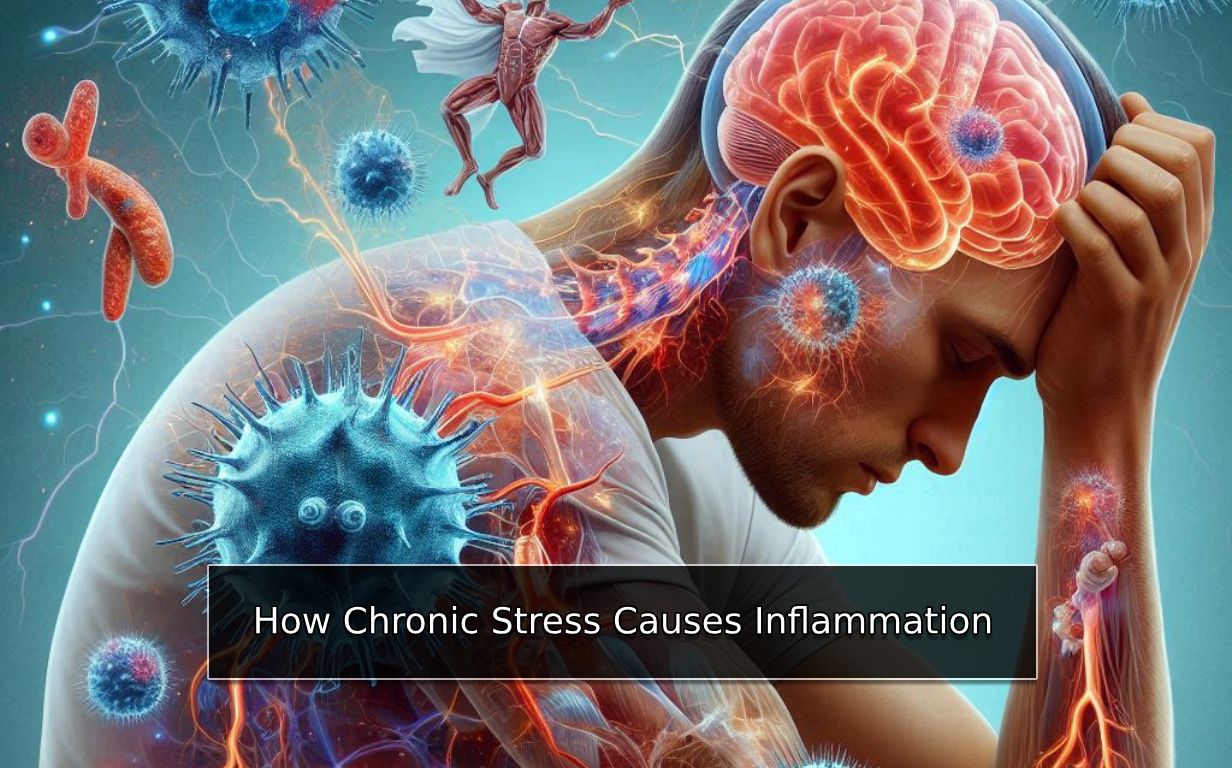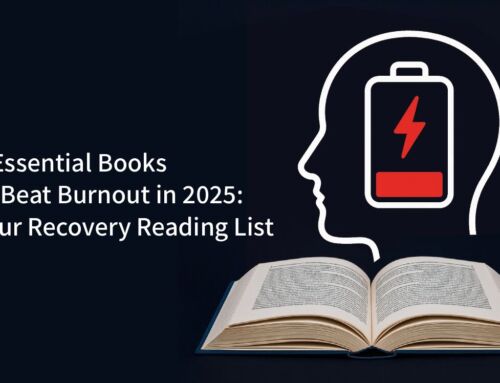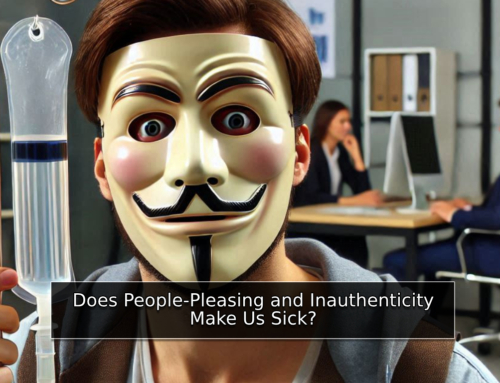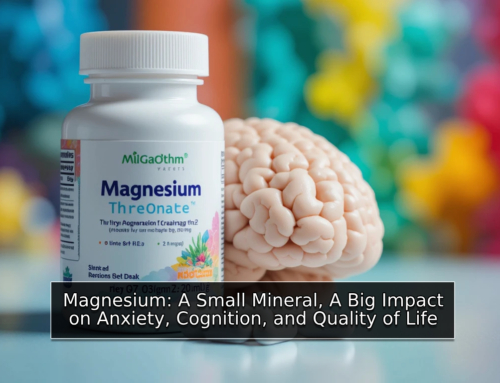How Chronic Stress Causes Inflammation
Research shows the profound impact of thoughts on physical health
Did you know that your thoughts can directly influence your physical health? It may sound like something from a science fiction movie, but the science behind it is solid and well-documented.
The Mind-Body Connection: Stress and Inflammation
When you experience stress, anxiety, or any other negative emotion, your body releases hormones like cortisol and adrenaline. These hormones trigger an inflammatory response, an ancient defense mechanism designed to help us deal with threats. However, when stressful situations become chronic, this inflammatory response persists for too long, damaging tissues and organs. Chronic inflammation is linked to a wide range of diseases, from heart disease to autoimmune disorders and mental health issues.
How Stress Fuels Inflammation
Chronic stress throws our hormonal balance out of whack. Cortisol levels soar, suppressing the immune system and promoting inflammation. Additionally, chronic stress impairs the body's ability to repair itself, weakening the immune system further.
Scientific Evidence
Numerous studies support the link between stress and inflammation. For instance:
- "Chronic stress, daily stressors, and circulating inflammatory markers" by Jean-Philippe Gouin and colleagues found a direct correlation between repeated stressful experiences and elevated levels of inflammatory proteins like IL-6 and CRP.
- "The Immunology of Stress and the Impact of Inflammation on the Brain and Behavior" by Meghna Ravi and colleagues from Atlanta, Georgia, highlighted the impact of chronic inflammation on the brain, including changes in the structure and function of regions associated with emotions and memory. This research suggests that chronic inflammation can contribute to the development of mental disorders like depression and anxiety.
The Impact of Trauma on Inflammation
Research indicates a strong connection between trauma and chronic inflammation. In the article "The Relationship Between Inflammation and Post-traumatic Stress Disorder" (Sun et al., 2021), individuals with PTSD were found to have elevated levels of inflammatory proteins like IL-6 and TNF-α, indicating persistent inflammation. Researchers hypothesize that this link is due to an overactive immune response to the traumatic event, which continues even after the threat has passed. This chronic inflammation can contribute to the development and persistence of PTSD symptoms, such as anxiety, depression, and sleep disturbances, and increase the risk of chronic diseases like heart disease and diabetes.
Inflammation and Depression
Numerous studies have shown a strong link between chronic inflammation and depression. One intriguing finding in this area is that individuals with stress-related mental disorders, including depression, "exhibit a state of low-grade chronic inflammation."
Two phenomena associated with this chronic inflammation are:
- Increased levels of pro-inflammatory cytokines: Cytokines are proteins released by immune system cells that contribute to the inflammatory response. Elevated levels of pro-inflammatory cytokines are linked to symptoms of depression, such as fatigue, difficulty concentrating, and changes in appetite and sleep.
- Increased white blood cell count: White blood cells are part of the immune system and contribute to the inflammatory response. An increased white blood cell count is also associated with symptoms of depression.
Health Implications of Chronic Inflammation
Chronic inflammation is linked to a wide range of diseases, including:
- Heart disease and stroke
- Diabetes
- Obesity
- Autoimmune diseases
- Neurological diseases like Alzheimer's and Parkinson's
- Depression and anxiety
How CBT and ACT Can Help
Cognitive-behavioral therapy (CBT) and acceptance and commitment therapy (ACT) provide effective tools for managing stress, changing thought and behavior patterns, and achieving mental well-being.
- CBT: Your therapist will help you identify and challenge negative and irrational thoughts, replacing them with more positive and realistic ones.
- ACT: This therapy will help you accept your thoughts and feelings as they are, without judgment, and take action in line with your values.
What You Can Do
- Practice meditation: Meditation helps calm the mind and reduce cortisol levels.
- Engage in regular physical activity: Exercise releases endorphins, hormones that improve mood and reduce inflammation.
- Maintain a healthy diet: A diet rich in fruits, vegetables, and whole grains provides your body with the nutrients it needs to function optimally.
- Get enough sleep: Quality sleep is essential for the body and mind to repair and rejuvenate.
- Consider cognitive-behavioral therapy (CBT) or acceptance and commitment therapy (ACT): These therapies provide effective tools for managing stress, changing thought and behavior patterns, and achieving mental well-being.
Conclusion
The link between thoughts and inflammation is complex and fascinating. Numerous studies show that chronic stress can lead to chronic inflammation, which is linked to a wide range of diseases, including depression. Despite this, there are steps we can take to reduce inflammation in our bodies and improve our overall health. Changing our thought patterns, engaging in physical activity, eating a healthy diet, getting enough sleep, and seeking professional help are just some of the tools at our disposal. Start your journey to better health and well-being today!
References:
- Chronic stress, daily stressors, and circulating inflammatory markers: Jean-Philippe Gouin, Ronald Glaser, William B Malarkey, David Beversdorf, Janice Kiecolt-Glaser. PMCID: PMC3253267 NIHMSID: NIHMS323842 PMID: 21928900
- The Immunology of Stress and the Impact of Inflammation on the Brain and Behavior: Meghna Ravi, Andrew H Miller, Vasiliki Michopoulos: PMID: 34055387 PMCID: PMC8158089 DOI: 10.1192/bja.2020.82
- How Immune Activation May Alter the Brain and Cause Depression-Related Behavior During Chronic Social Stress: The Brain & Behavior Research Foundation
- The Relationship Between Inflammation and Post-traumatic Stress Disorder. Yajing Sun, Yuanyuan Qu, Jianwei Zhu. PMCID: PMC8385235 PMID: 34456764
Note: The information presented in this article is for informational purposes only and is not a substitute for professional advice, medical treatment, or psychological counseling. If you are dealing with stress or distress, seek the advice of a mental health professional or medical doctor.
Contact now
Ready to take the first step towards positive change? Contact me now for more information and to schedule an appointment. Whether you prefer in-person sessions in Tel Aviv or virtual meetings via Zoom, my integrated approach of Cognitive Behavioral Therapy (CBT) and Acceptance and Commitment Therapy (ACT) can help you break free from struggles and find greater fulfillment in life. I'll be sure to get back to you as soon as possible. Let's embark on this transformative journey together!
Call Whatsapp 052-2325511
Or fill out the following form.
Can ACT and CBT assist you or your loved ones?
Welcome to my therapy practice, where I offer a powerful combination of Cognitive Behavioral Therapy (CBT) and Acceptance and Commitment Therapy (ACT) techniques. CBT is a goal-oriented, short-term approach that's highly effective for anxiety, depression, low self-confidence, and more. ACT complements CBT, helping you navigate life's challenges and find fulfillment and authentic, happier life.
If you're struggling with anxiety, depression, low self-image, or facing setbacks, CBT combined with ACT may be the key to transforming your life. Break free from the struggle and take a step towards a happier, more fulfilling life.
Contact me today to schedule an appointment and embark on your journey of positive change. You don't have to face it alone; I'm here to support you every step of the way. Let's work together to create the life you deserve!





